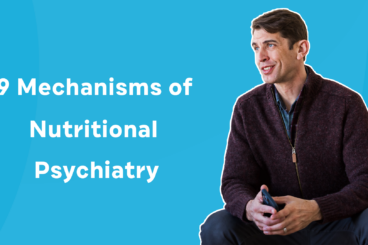You have likely heard of omega-3 and omega-6 fatty acids. I’d like to introduce you to omega-9 fatty acids. Actually, you’ve met them under different names— olive oil, lard, and almonds. I want you to get to know oleic acid as it is a great fat for the brain and body and one that pretty much everyone agrees is good for your health.
A study entitled “Dietary Linoleic and Oleic Fatty Acids in Relation to Severe Depressed Mood: 10 Years Follow-up of a National Cohort” looked at severe depression and severely depressed moods, and if there is a link to different fats like oleic acid (a monounsaturated omega 9) and linoleic acid (an omega-6 fat linked to inflammatory processes in the body) and the risk of being depressed. Having seen many patients with severe depression over the last decade, trust me: you want to do everything you can to avoid it. So what mix of fats is right for brain health?
Oleic acid is the main fat in olive oil, meat, avocados, and lard. It serves many funcaitons in the brain, like being the building block for a molecule called oleoylethanolamide that protects brain cells. Following 4,856 men and women over a ten- year period, researchers found that women who ate the most oleic acid were 52% less likely to have severe depression. Even more impressive than the link between oleic acid and women was the link between omega-6s and severe depression in men. Fellas who ate the most linoleic acid, the main fat in soybean, corn, cottonseed, and sunflower oil, were 234% more likely to have severely depressed moods.
Omega-6s have surged in our diets over the past 50 years with our increase in vegetable oil intake. These fats are common in processed food, check out any label. On the other hand, oleic acids found in natural foods like olive oil, beef, lard, almonds, walnuts, and avocadoes will help keep your brain healthy (and happy).



